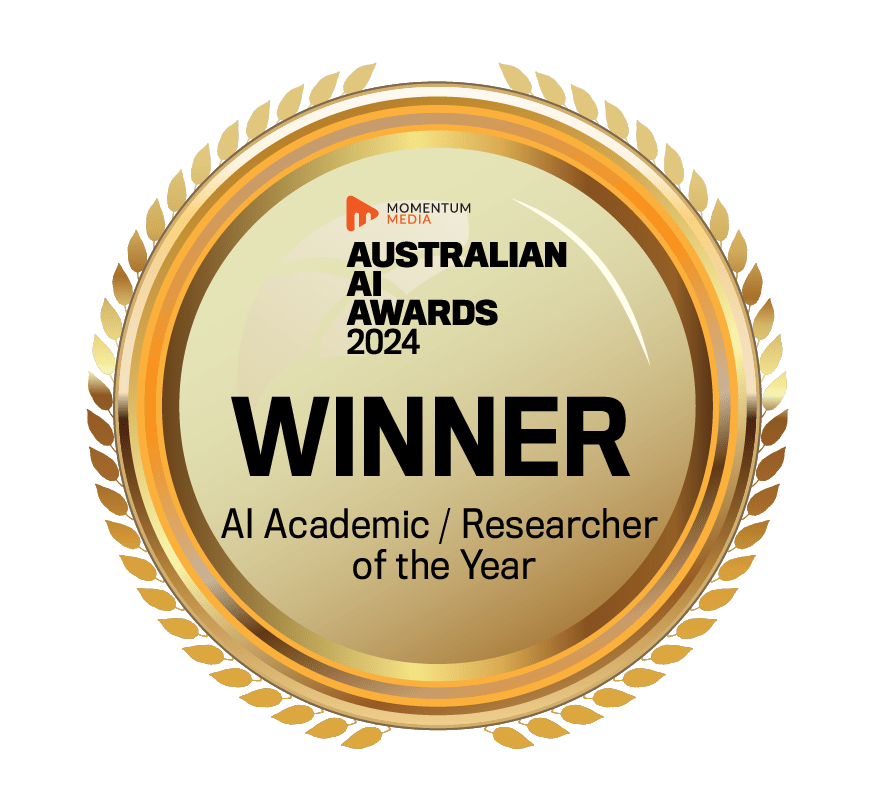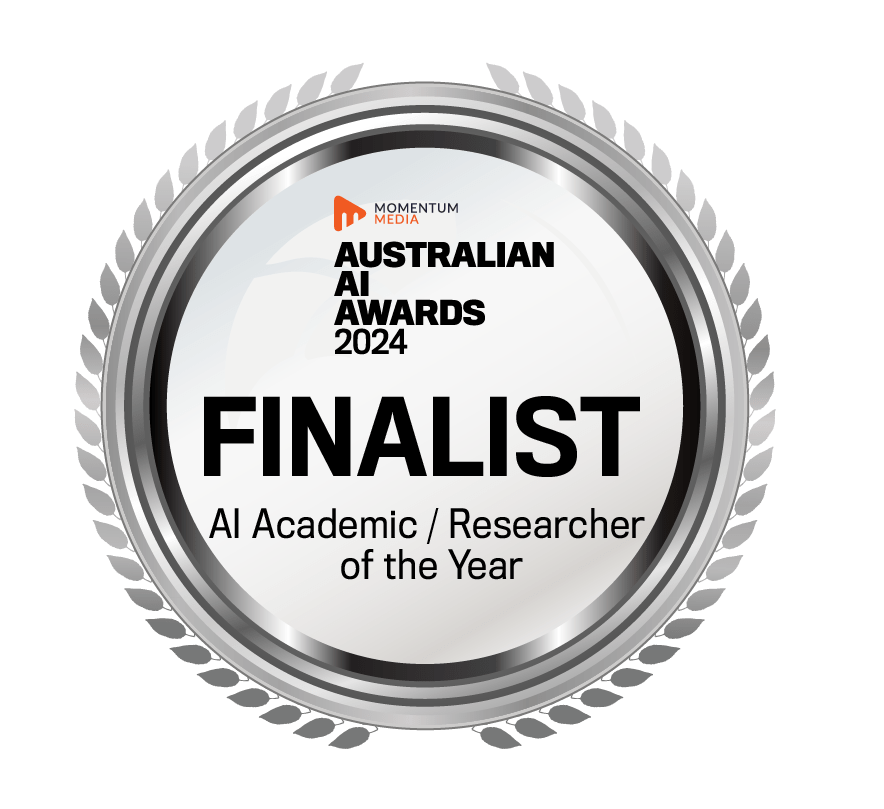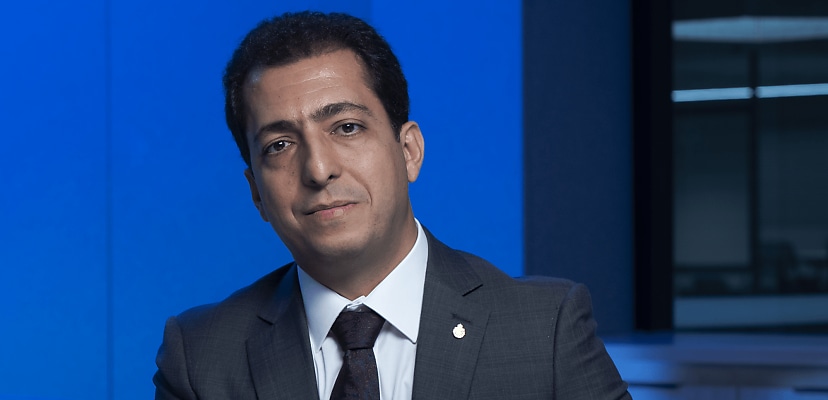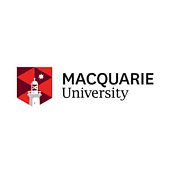



How did you start down this career path?
From an early age, I have always been captivated by the concept of intelligence, what it means to learn and how (as humans) we are uniquely capable of applying learned knowledge and skills to achieve complex goals. Whether watching people solve intricate problems or observing how human minds process information, I was consistently drawn to understanding the mechanisms behind learning and cognitive functioning. I recall an essay I wrote in primary school when I was asked to discuss a subject I was particularly interested in, where I explored the concept of a magic system capable of recording our dreams while we sleep.
This early interest in the intersection of intelligence, cognition, and technology has continued to shape my career path in future, where I found my way to computer science at university. My exposure to software engineering and Machine Learning soon drew me into a virtual world where Artificial Intelligence (AI) wasn't just theoretical but could be applied to build real, functioning systems.
As my understanding of software engineering and AI systems grew, I realised that language was central to everything. Language is the primary communication interface between humans, but it's also the key to human-machine interaction. It became clear to me that the evolution of AI, particularly the development of large language models (LLMs), was rooted in understanding the power of language. LLMs are transformative because they allow machines to process and understand the conversations, which in turn reshapes how businesses operate and how society evolves. The fact that language is not only a medium for communication but also cognition was a profound realization that has continued to influence my work.
After more than a decade of working in the industry and witnessing the transformative power of AI in various sectors, I realized I wanted to develop my generative intelligence further. Therefore, I decided to pursue a PhD, driven by a desire to enhance my problem-solving and critical thinking skills while deepening my expertise in AI. During my PhD studies at UNSW Sydney, I focused on understanding graphs and their connection to our biological neural networks. This led me to develop a distributed graph processing system capable of curating and analyzing vast amounts of business process-related big data. This project was a significant milestone as it bridged the gap between theoretical AI and its practical applications in industry.
Upon completing my PhD, I was determined to explore the depths of neural networks further. During my postdoctoral work at UNSW Sydney, I concentrated on deep learning, refining my understanding of how these artificial systems mirror our biological neural networks. The ability to draw parallels between human cognition and machine learning fascinated me and gave me the tools to explore even more innovative ways to build intelligent systems.
My journey eventually brought me to Macquarie University, a wonderful environment where I could transfer my accumulated knowledge and experiences to the next generation of AI and data scientists. This opportunity allowed me to contribute to the "collective learning process." To facilitate this, I established the Big Data Society, the Data Science Lab, and the Centre for Applied Artificial Intelligence at Macquarie. These initiatives have played a critical role in training the next wave of AI professionals, helping organizations place data and AI at the core of their operations.
Through these ventures, I've had the privilege of mentoring students and professionals alike, guiding them to become innovators capable of redefining how businesses create, capture, and share value through AI. Simultaneously, I have learned immensely from their fresh perspectives and innovative ideas, continually enriching my understanding and approach to AI. The collective learning model that I foster not only empowers others but also fuels my growth, serving as a key driver for pushing the boundaries of what AI can achieve.
What inspires you in your role/industry? Why?
What inspires me most in the AI industry is its limitless potential to transform how we live, work, and solve complex problems. Every day, we discover new ways AI can improve healthcare, education, and business operations. The opportunity to be at the forefront of such transformative technology, where our research and innovations can have a tangible, positive impact on society, keeps me motivated.
I am particularly inspired by AI's ability to enhance human capabilities. Whether through the personalization of education to suit individual learning needs or leveraging AI to make early medical diagnoses, the possibilities to use AI for social good are endless. The rapidly evolving nature of the industry, with innovations like generative AI and large language models, keeps me engaged and continuously learning.
Additionally, I find great fulfilment in mentoring the next generation of AI professionals. By sharing knowledge and fostering innovation, I can contribute to a collective learning process that ensures AI remains a force for positive change. Ultimately, the intersection of technology, societal impact, and the potential for continuous discovery inspires me in my work every day.
What's your approach to customer service that separates you from the rest?
My approach is grounded in collaboration, transparency, fairness, and adaptability. I believe that understanding the unique needs of each customer or partner is essential for delivering value. By engaging in open and honest communication, I ensure that expectations are clear and that we can work together to tailor solutions that meet their goals. This personalized approach builds trust and fosters long-term relationships. I prioritize fairness to ensure our services are inclusive and effective for all users. Fair customer service promotes transparency, consistency in decision-making, and equitable access to resources, ensuring that all customers feel valued and fairly represented.
Another key aspect of my approach is adaptability. The fields of AI and data science are fast-paced, with emerging technologies constantly reshaping the landscape. I prioritize flexibility in addressing customer challenges, ensuring our solutions are agile and evolve alongside technological advancements. This allows us to address new problems proactively rather than reactively. Moreover, I emphasize continuous feedback loops, regularly checking in with customers to assess progress and make necessary adjustments. This iterative process ensures we always meet their needs and deliver effective, cutting-edge solutions.
How do you innovate and stay ahead of industry trends?
Staying ahead in the rapidly evolving field of AI requires a proactive and multifaceted approach. First and foremost, I prioritize continuous learning by engaging with the latest research publications, organizing/attending conferences, and participating in workshops. Leading the Centre for Applied Artificial Intelligence gives me a dynamic environment where innovation is fostered daily. Collaborating with a diverse group of researchers and industry partners allows me to exchange ideas and exposes me to various perspectives and challenges.
I place great emphasis on practical application. By working closely with industry partners through joint projects and consultancies, I gain insights into real-world problems that require immediate and innovative solutions. This hands-on experience ensures that my research is not only theoretically sound but also highly relevant and impactful. Additionally, mentoring the next generation of AI professionals keeps me connected with fresh ideas and new ways of thinking. Their curiosity and willingness to explore uncharted territories inspire me to push the boundaries of what is possible.
What is the toughest challenge you've faced in your role? How did you overcome it?
One of the toughest challenges I have faced is navigating the whirlwind pace of innovation in AI, where we are witnessing a century's worth of innovation compressed into just a few years. This rapid acceleration makes it difficult to stay ahead while ensuring these powerful technologies are developed responsibly. The challenge lies in balancing the excitement of groundbreaking innovation with the imperative of safeguarding society from potential risks.
To overcome this, in our AI centre, we have adopted an "Innovation with Care" approach in all our projects and initiatives. This means embedding safety by design considerations into the very fabric of AI development from the outset. By proactively identifying and mitigating risks, we can prevent unintended consequences before they occur. By integrating reinforcement learning with human and AI feedback, we iteratively refine and adjust AI systems to ensure they perform reliably and ethically in real-world settings.
Additionally, we actively contribute to the open-source community. Sharing our research, tools, and methodologies openly fosters collaboration and transparency, allowing us to address challenges that no single entity could tackle alone collectively. Engaging with a global network of researchers and developers accelerates innovation while promoting standardization in safety practices. This collaborative environment not only enhances the quality of our work but also helps in building AI systems that are trustworthy and beneficial for all.
What are your goals for the next 5 years?
Over the next five years, I aim to elevate AI literacy by developing accessible educational programs that demystify AI concepts for everyone, from students and professionals to the general public. By fostering widespread understanding, we can empower society to engage with AI technologies confidently and responsibly, preparing for the rapid advancements ahead.
Building on this, I plan to use AI to enhance literacy across various fields. For example, we are launching a new project on AI-enabled health literacy that personalizes health concepts for different stakeholders, from the general public to nurses and medical experts. By tailoring information to individual needs and comprehension levels, we can make complex health information more accessible and actionable. This approach can be extended to fintech literacy, environmental literacy, and more, helping people understand and navigate intricate systems more effectively.
Advancing AI research and innovation is another priority. I intend to explore new methodologies, particularly in deep learning and large language models, and lead collaborative projects that push the boundaries of what AI can achieve. By addressing complex real-world problems, we can contribute meaningful solutions that have a lasting impact. A key initiative in this area is our new project called "Natural Language Oriented Programming" [1]. This project aims to help the general public write code and develop AI models using natural language. By bridging the gap between human language and programming languages, we hope to democratize software development and AI creation. This will empower individuals without formal technical training to bring their ideas to life, fostering innovation and allowing a more diverse group to contribute to technological advancement.
Ensuring ethical and responsible AI remains crucial. I'll advocate for an innovation with a care approach, integrating ethics into every stage of development by design. By contributing to industry standards that promote transparency, fairness, and accountability, we can ensure AI technologies are developed responsibly and benefit society.
Translating research into real-world applications is key to maximizing AI's impact. By bridging the gap between theory and practice, I aim to deploy innovative solutions across various industries, enhancing efficiency, creating opportunities, and addressing societal challenges. One such initiative is our new project, ProcessGPT [2], which aims to facilitate the automation, augmentation, and improvement of personal and business processes. Such approaches will help us explore the integration of AI and human augmentation. By developing technologies that enhance human capabilities rather than replace them, we can foster effective collaboration between humans and machines. This synergy can potentially lead to new horizons in productivity and innovation.
To learn more about Professor Amin Beheshti and his pioneering work in artificial intelligence and data science, visit his profile, here: https://data-science-group.
[1] https://arxiv.org/abs/2406.05409
[2] https://arxiv.org/abs/2306.01771
Macquarie University was established in 1964 as a bold experiment in higher education. Built to break from traditions...


